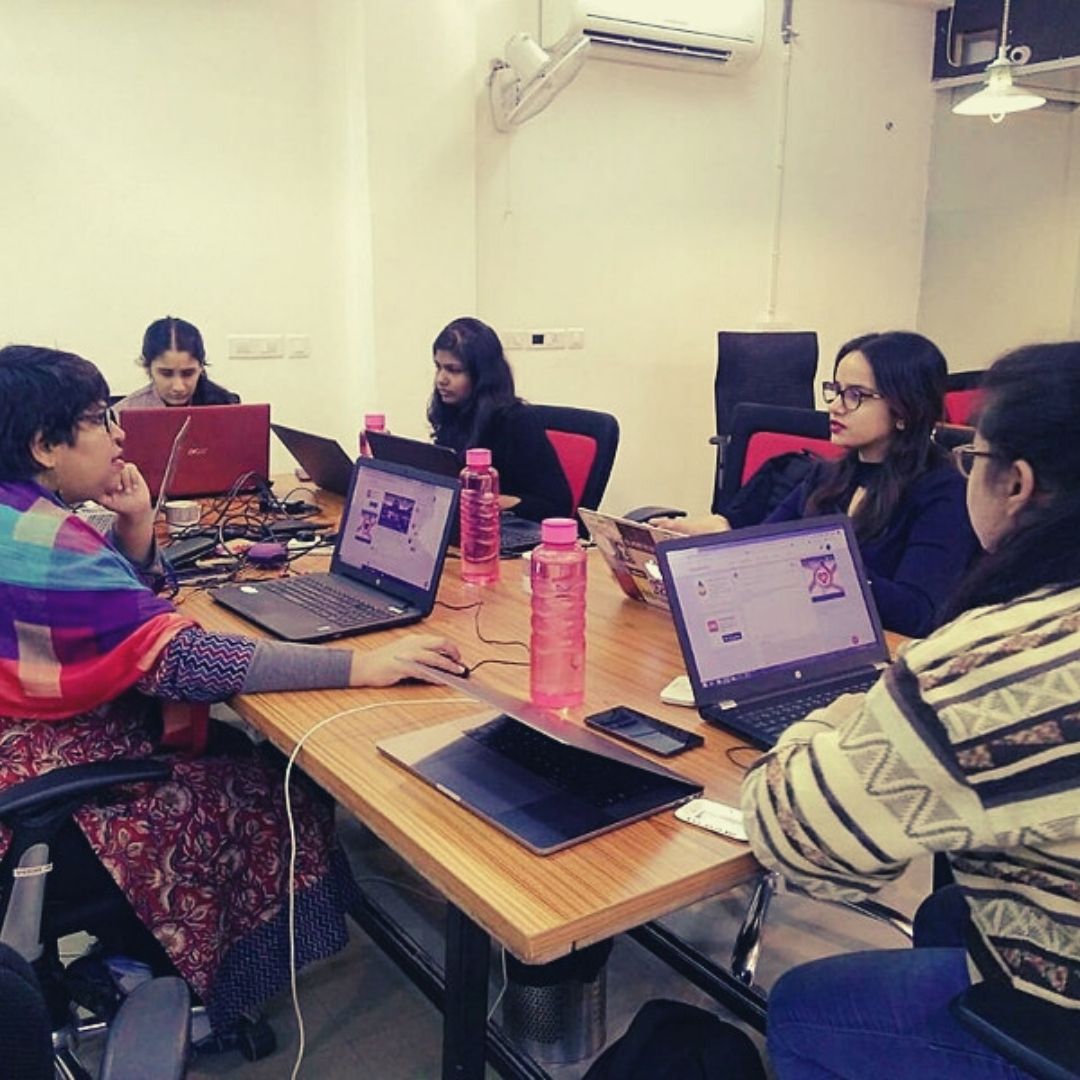
Image Credits: Wikipedia
Over 65% People Believe Women Make Better Financial Decision Makers Than Men: Survey
Writer: Tashafi Nazir
For most people, journalism sounds hectic and chaotic. For her, it's a passion she has been chasing for years. With an extensive media background, Tashafi believes in putting efforts on presenting a simple incident in the most interesting way.
India, 4 Feb 2022 1:11 PM GMT
Editor : Shiva Chaudhary |
A post-graduate in Journalism and Mass Communication with relevant skills, specialising in content editing & writing. I believe in the precise dissemination of information based on facts to the public.
Creatives : Tashafi Nazir
For most people, journalism sounds hectic and chaotic. For her, it's a passion she has been chasing for years. With an extensive media background, Tashafi believes in putting efforts on presenting a simple incident in the most interesting way.
According to a survey by Axis My India, nearly 41 per cent of users are concerned about the security of their personal and financial data that they enter online, while 48 per cent are confident of their financial health despite concerns around the new COVID variant.
Around 41 per cent of users are concerned about the security of their personal and financial data that they enter online, while 48 per cent are confident of their financial health despite concerns around the new Omicron variant of COVID-19.
According to a survey by Axis My India, nearly 67 per cent of the respondents believe that women are better financial and investment decision-makers than males.
Consumer data intelligence company Axis My India's findings of the India Consumer Sentiment Index (CSI) last month had a sample size of 10,525 individuals across 36 states. While 70 per cent belonged from rural India, 30 per cent were from urban areas. Moreover, 59 per cent of the respondents were male, while 41 per cent were females.
The net CSI score, calculated by percentage increase minus percentage decrease in sentiment, was down to plus seven, from plus ten in January 2021, in lieu of the observed reduction in household spending, both across the essential and non-essential categories since the last three months, further highlighted by the Omicron scare previous month.
Five Relevant Sub-Indices
The sentiment analysis delves into five relevant sub-indices – overall household spending, money spent on essential and non-essential items, healthcare cost, media consumption habits and mobility trends.
In February, Axis My India's Sentiment Index further investigated the influence of advertisement on purchase decisions, parallel viewing behaviour regarding mobile phones and television and consumers' approach to fitness and health.
"The survey captures consumers' apprehension yet preparedness and confidence to the advent of the new COVID-19 variant. While essential, non-essential and health related expenditures saw a dip, consumers at the same time have expressed their confidence of not being financially affected by the third wave," Pradeep Gupta, CMD, Axis My India said.
"Moreover, in our attempt to discover consumer information consumption habits, we saw an increasing possibility of shared space competitiveness between television and online for influencing ad-based purchase decisions," Gupta added.
Gupta stressed that unlike television, the online medium is an interactive medium and possess the challenges of ensuring the safety and security of data shared by consumers. Overall with the country's sentiments limping back to normalcy and more opportunities opening up within the media space, marketers and advertisers are in a sweet spot and should leave no area untouched, Mint reported.
Overall household spending has increased for 53 per cent of families, which reflects a six per cent dip from the last month, the survey found. Overall spending remains the same for 33 per cent of the families which is the highest in the past five months. The net score has decreased from +50 to +39.
Spending on essentials like personal care and household items has increased for 43 per cent of the families, showcasing an increase in the northern and southern parts of the country. However, it is also the lowest surge in the past five months. Spends, however, remain the same for 33 per cent of the families. The net score, which was +26 in January, is at +20 this month.
Spending on non-essential and discretionary products like AC, car, refrigerator has increased for 10 per cent of families, indicating an even lower percentage than the last five months. Expenditure remains the same for 83 per cent of the families, a surge of five per cent from January. This is reflected mainly in the sentiment of people living in the eastern and northern parts of the country. The net score, which was at plus six last month, is at plus three for February.
Consumption on health-related items more or less remained the same for 44 per cent of the families, while a rise was witnessed among 38 per cent of the families. In comparison to January, the 'increase' consumption indicators represent an overall dip of two per cent. The health score that has a negative connotation, i.e., the lesser the spends on health items, the better the sentiments, has a net score value of -20 compared to -23 last month.
Consumption of media like internet, television and radio had increased for 24 per cent of the families, same as last month. Meanwhile, 89 per cent of families said that they were going out for short vacations, malls and restaurants compared to 85 per cent of families last month. Reflecting the view of 89 per cent of the families, this has been the highest percentage in the previous five months. However, only four per cent of families recorded a surge in outgoing activities. The overall mobility score remains the same as January at minus three.
Also Read: Valued At $8.65 Billion, LIC Is World's Third Strongest Insurance Brand
 All section
All section














